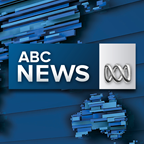
Updated
Australian music has a pretty big problem: not enough people are listening to it.
At least, that's if you go by the Australian pop charts.
Last week there were only two songs by Australian artists in the ARIA top 50 singles chart. This week, as Australian artists celebrate another ARIA awards, there are three.
In the US Billboard top 50, by contrast, all but a handful of tracks are homegrown.
Junkee reported in August there still had not been an Australian song hit number 1 in Australia in 2017. That trend has continued.
What's going on?
Music publicist Stephen Green said the problem was complex.
"I think the concern most people have at the moment about the complete lack of Australian music in the charts is whether it's actually a systemic, structural thing," he said.
Streaming, quickly becoming the most common way people consume music, is now what most informs the make-up of the ARIA singles charts, since digital download numbers are declining and physical CD singles no longer exist.
"As the streaming market has become a global, not a local, market, in our view Australian artists may be disadvantaged as they may not be as well-known internationally," Maria Amato, CEO of the Australian Independent Record Labels Association, said.
Not appearing in the charts has flow-on effects, because the big radio stations play the hits. They may be less inclined to give prominence to Australian songs in popular timeslots if few are charting.
"It's the chicken and the egg situation," Mr Green said. "How do you have a hit if no-one is playing your song?"
Some in the industry say the popularity of playlists on streaming platforms like Spotify, Apple Music and Google Play is an issue. The really popular playlists are curated overseas; Australian artists often don't feature.
But Spotify said nine out of the 10 top playlists that drive streams in Australia predominately feature "domestic repertoire".
Doesn't commercial radio have local content quotas?
Yes.
About 25 per cent of the music they play must be local. However, some believe they are not hitting their mark.
"From the data we've seen, commercial radio may not in some instances be strictly compliant with the quota," Ms Amato said.
 Photo:
Electronic duo Peking Duk, who were up for four awards, and won one, at the ARIAs. (Facebook: Peking Duk)
Photo:
Electronic duo Peking Duk, who were up for four awards, and won one, at the ARIAs. (Facebook: Peking Duk)
"Our concern longer-term is that a singles chart biased against Australian artists will just reinforce commercial radio's arguments against local content."
APRA, the peak body for distributing royalties to musicians when their music is played on the radio, is looking into the accuracy of the local content reports commercial radio stations publish.
It said it would review Commercial Radio Australia's upcoming report on quota compliance "extremely carefully", comparing it against its own data, to make sure they are hitting the mandated targets.
"If you talk to people in radio," Mr Green said, "they are there to play the hits, and Australian music is not in the charts, therefore they are not playing Australian music.
"Which obviously then means people aren't hearing it, therefore it doesn't get in the charts, and it's a spiral situation down."
But Joan Warner, chief executive officer of Commercial Radio Australia, said claims commercial stations were not hitting their quotas, or doing so by filling non-peak shifts with Australian music, were "mischievous, ill-informed and just plain wrong".
"The commercial radio industry is a big supporter of Australian music, with on average one in every five tracks played being Australian," she said, adding that many commercial stations played more Australian music than they were required to.
The ABC's triple j has a self-imposed quota of 40 per cent.
What can be done?
There are no easy answers, but some suggest the streaming giants have a role to play.
Mr Green suggested Spotify might, for example, give more prominence in algorithms to playlists curated in Australia, and the industry could, "work with Apple and Spotify to work out how Australian-based playlists can be recommended to people at a higher [rate]".
Spotify, which has emphasised growth in the music industry and decline in music piracy since it launched in Australia five years ago, is encouraging "more open dialogue" on the issue.
"Whilst we are already having conversations with key stakeholders in the industry on this topic, we must also acknowledge that we are just one part of a local ecosystem that must work collaboratively on this issue," Alicia Sbrugnera, senior music editor at Spotify Australia & NZ, said.
Chris Bowen, CEO of Music Australia, said he had heard increasing talk of the need for more Australian-curated playlists, but that it was still early days — that the industry was still figuring out how to champion Australian music in the streaming age.
Topics: music, music-industry, arts-and-entertainment, australia
First posted









 Add Category
Add Category
